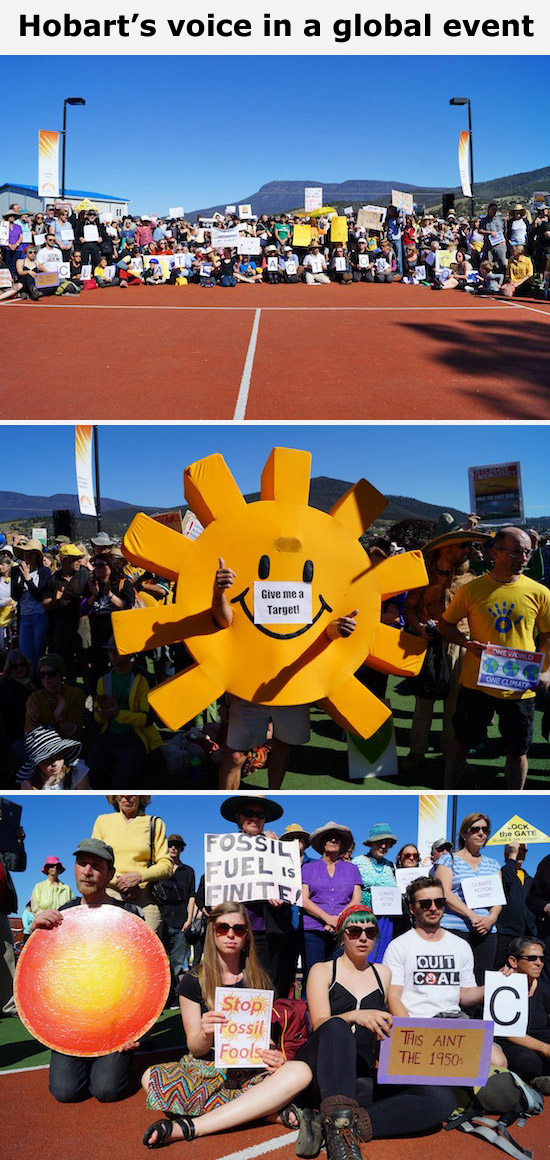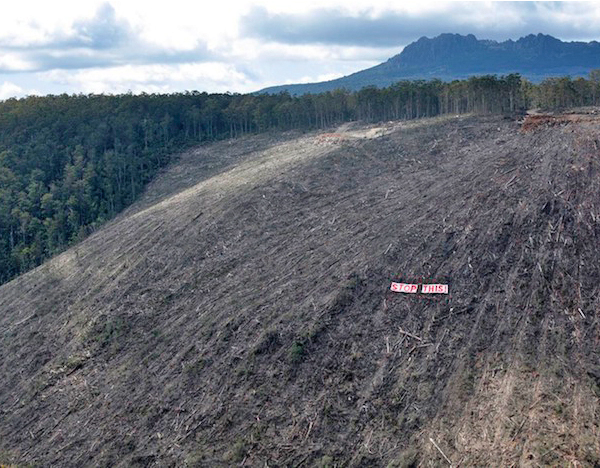Paul Harriss’s zealous campaign against the forest conservationists is undermining his own government’s authority [23 September 2014 | Peter Boyer]
The noise of discord around the world is more deafening by the day, which tells us more about information flows than about conflict itself. We’ve always found reasons to differ with each other. Disagreement is part of being human.
Our leaders exploit this by using martial phrases to rally people to a cause, like Bob Hawke’s “war on drugs”, and the “war on terror” embraced by John Howard and now Tony Abbott. These things are really about health and criminality, but so what? A war is what grabs people’s attention.
The British and the many nations they spawned invented clever ways to channel our innate aggression. They created and codified most of the ball-games we know today, and invented the adversarial principle now enshrined in political and legal systems across the world.
Ireland and Sri Lanka, among others, have shown that if enough people want conflict it can be kept going for a long time. We’re not inclined to that level of violence on our own southern island, but we’ve shown we’re not too bad at sustaining our own form of debilitating conflict.
Depending which side you’re on, the great forests of Tasmania are a resource to be protected at all costs or a resource crying out to be exploited. The belligerents believe that they can’t be both, that we have to choose a side just as in football. There can be no in-between.
In 2009, in the fourth decade of the “forest wars”, a handful of people from both sides of the conflict decided it was time to sit down together and talk, which required that they place themselves in the continuing crossfire. That turned out to be a brave decision.
For Terry Edwards, chief executive of the Forest Industries Association of Tasmania, it meant distancing himself from key political supporters, just as it was a leap of faith for Michael O’Connor and others in the Construction, Forestry, Mining and Energy Union.
The peace talks were a massive undertaking for Phil Pullinger, head of Environment Tasmania, and Wilderness Society chief executive Vica Bayley, each of whom had given a big part of their lives to protecting forests. Now they were sitting down to do deals with the enemy.
Three years of exhausting negotiation ended suddenly and unexpectedly in November 2012 with a signed agreement. The Tasmanian government took six more months to get enabling legislation passed, and then only with some deft manoeuvring to get around upper house obstruction.
This was a moment to be savoured, but we never got the chance. The moment the legislation passed, the air was filled with complaint. There was predictable animosity from logging advocates, but more surprising to me were the vehement objections from the conservationist side.

PEOPLE’S CLIMATE MARCH: IMAGES BY ANDY CUNNINGHAM About 400 people gathered at Hobart’s iconic Museum of Old and New Art (MONA) on Sunday in support of the People’s Climate March in New York City, where 340,000 marchers included the United Nations Secretary-General, Ban Ki-moon. About 5000 such events around the world sought to focus attention on today’s Leaders’ Summit at the UN, ahead of the crucial Paris meeting next year.
Kim Booth and Christine Milne of the Greens, along with Peg Putt of Markets for Change, thought Pullinger and Bayley had been naïve. Jenny Webber of the Huon Environment Centre felt betrayed. To novelist Richard Flanagan, the deal empowered a rogue agency in Forestry Tasmania.
It wouldn’t have been lost on the signatories that opposition from both sides was a strong sign they got it right, but those complaining were impervious to such a notion. Many of them remain so.
Paul Harriss led the fight in the Legislative Council for a return to Tasmania’s old forestry regime. For him the agreement, far from opening a door to peace, inflamed the smouldering anger he felt against anyone who sought to stop or limit native forest logging.
Backed by Premier Will Hodgman he won a House of Assembly seat in the March elections. After Hodgman picked him as resources minister, the pair worked together to ensure parliament scrapped the forest agreement. For reasons that escape me, they chalk that up as a win.
Harriss appointed no environmentalists to his forestry advisory council, which he said would be “focused on growing the industry, not shutting it down.” That’s despite reservations expressed by Terry Edwards, who knows better than most that wisdom in this debate is not confined to one side.
But Harriss is not finished. He wants to see the forest protest movement ground into complete submission. Against expert advice that current laws are quite enough, he’s now rammed through the lower house new anti-protest measures with yet heavier fines and gaol terms.
The intensity and narrow focus of his cause brings to mind the crusade by Virginia (US) Attorney General Ken Cuccinelli against the highly-regarded climate physicist Michael Mann.
Cuccinelli was so enraged by Mann’s “hockey stick” temperature research that he took him to court in 2010 for allegedly committing fraud by manipulating data. After an expensive legal battle lasting two years, and with zero evidence submitted against Mann, the court threw the case out.
Such uncompromising hostility can be found on both sides of the forest debate, but has no place in government. The refusal of Harriss and his leader to see this subverts their authority and blackens their records.

